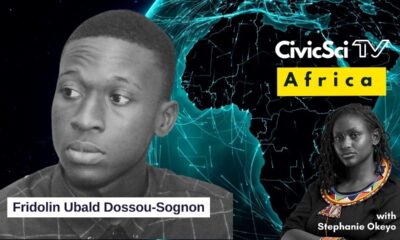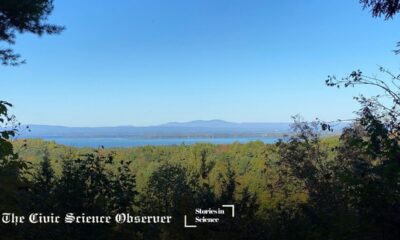Stories in Science Special Series
My Kaleidoscopic Journey in Science
If you observe carefully, you’ll find a similar pattern in science and life. Both teach you the same lessons. The lessons that you learn from science help you solve problems in life as well.

– Aswathi Ashok, M.Tech –
[su_boxbox title=”About” box_color=”#262733″]Aswathi completed her master’s degree in Biotechnology in 2016 from Vellore Institute of Technology, in Vellore, India. She aspires to become a future researcher and academician. She is also a trained and passionate Bharatanatyam dancer and Karnatic singer. She enjoys blogging during her free time. You can check out her blog on travel, food and musings on life. You can reach her via LinkedIn or email. [/su_boxbox]
[su_boxnote note_color=”#afc4c1″]
Key Points
- Sometimes, the things that you think you really want might not always be what you actually need.
- Everything happens in life for a reason.
- Trust that someday, everything will make perfect sense. Patience is one good characteristic to cultivate in science.
- Science teaches you how to face challenges in life.[/su_boxnote]
Where it all began.
[dropcap]F[/dropcap]rom an early age, I have always been an avid reader. When I was in the fifth grade, I vividly recall hurrying to the library to get a new sequel of Nancy Drew’s books during one recess period. While browsing through the bookshelves, I stumbled on this huge book of science, which was misplaced and was instead kept in the fiction section. I am actually thankful that the book was misplaced. Why? Well, it was while browsing through the book that I first came across the word ‘camouflage’ in the context of how marine animals camouflage to catch their prey or defend themselves. I was so curious to know the meaning of the word that I took the book and ran to ask our school librarian, who explained the meaning of the word. I was thrilled to know such a behaviour/property existed. My inquisitiveness grew after this experience and I continually found myself running to the library when time permitted. I can honestly say that my passion in science began in that library all those years ago.
Everything happens in life for a reason. Trust that someday, everything will make perfect sense.
I grew up liking science and biology turned out to be my favourite. I had always dreamed of being a medical doctor because of my love for biology. I had a strong ambition to pursue medicine right from the seventh grade and passionately pursued this goal with everything that I did.
My first major setback was when I couldn’t get into a medical college in India, despite my persistent efforts. I couldn’t understand what or where I went wrong. I did manage to get on the ranked list but my ranking wasn’t high enough to secure a seat for the incoming class. Well, it so happened that I ended up choosing to pursue a bachelor’s degree in biotechnology and biochemical engineering instead. I was heartbroken seeing the syllabus since it covered more of biochemical and engineering subjects instead of pure biology.
Every time I looked at the syllabus, I regretted not getting a better rank for entry into medical school. I could see people around me happily enjoying their engineering studies, but despite my desperate efforts to try and blend in, I couldn’t.
Then I remembered what mom always said: “everything happens in life for a reason and that someday everything will make perfect sense.” That’s when I realised that making the most of what you are given is one of the keys to happiness. I wasn’t happy because I was failing to take advantage of all the other wonderful things that were happening around me. If I really loved the biological sciences, medicine was not the only path.
Slowly, I started to notice that there was beauty in every subject. All I needed to do was to be open to learning new things. I finally entered my third semester and from then on, it has become a beautiful journey. I then went on to pursue my master’s degree in Biotechnology, which was a real eye-opener for me. It was what I needed.
If you observe carefully, you’ll find a similar pattern in science and life. Both teach you the same lessons. The lessons that you learn from science can help you solve problems in life as well.
Over the course of my study, I realised I had this genuine curiosity and passion for research in molecular biology. I was intrigued by the term ‘molecular cloning’. It was in my masters program that I first got the chance to actually work on a molecular cloning project. This was like a dream come true. I cherished every moment spent in the lab working on the project where I conducted a functional analysis of the aspartyl protease gene. Long story short, it was a molecular cloning project done on E. coli DH5 and E. coli BL 21 bacterial strains. I absolutely enjoyed every aspect of the project.
The main objective of the project was to study the protein expression of aspartyl protease gene after it was introduced into the prokaryotic system, E. coli and analysing their role in Oryza sative against biotic and abiotic stresses. I had finally found my true passion in life, which was in molecular biology research. I understood that, for me, true happiness was in learning through research.
Patience is one good characteristic to cultivate in science.
Fortunately, I got an opportunity to do my final year masters dissertation for 10 months at CSIR-National Institute of Oceanography, Goa, India, where I was involved in molecular work on microalgae. The project was titled “Molecular identification of biofuel potential microalgae and PCR detection of their triacylglycerols.”
Molecular work is quite interesting, but I never said it was easy. There were times when the experiments didn’t give me the expected results. Sometimes, days – even months – would pass with no progress on my project and it always seemed to have hit rock bottom. Unlike bacteria, working with microalgae was tough. Most protocols for microalgae had not been optimised yet. Consequently, I had to repeatedly try different trial and error methods to optimize the 16S and 18S rDNA extractions and PCR amplification protocols for my samples.
There were numerous limitations throughout the process.
- Firstly, unlike bacteria that divide rapidly, microalgae cells take about a month to grow and become visible to our naked eyes.
- Secondly, for any molecular work, the culture must be a pure culture. Symbiotic association of microalgae with bacteria made it almost impossible for me to prepare axenic (pure) culture.
I was in a dilemma. There were days I felt my project was on a stand still mode without any progress. However, after working diligently for months to tackle the problems, I finally successfully completed my master’s thesis.
I owe it to my guide, Dr. N. Ramaiah, Chief Scientist at CSIR NIO, for his consistent support throughout my dissertation period. Something he said struck me: “if one approach doesn’t work, try solving the problem from a different perspective and that every result counts when it comes to research, be it positive or negative.” Sometimes, it so happens that – notwithstanding your meticulous efforts – you might still end up with negative results. This is still useful data.
For me, molecular biology is like oxygen. I thrive on it. I moved to Singapore in 2016 after I got married. I took the GRE exam and applied to universities in Singapore for PhD graduate programs. Additionally, I applied for jobs in the biotech sector.
After several rigorous efforts in sending applications, both for jobs and PhD studies, I finally started getting responses from the institutes I applied to. Unfortunately, I received no invitations for interviews. It was rejection after rejection.
A year later, I was overjoyed to get an interview letter from the Mechanobiology Institute, NUS for admission into the graduate program for August of 2018. The interview date was a week later. I was really hopeful that I’d get accepted since my interview went quite well. Sadly, a few days later, I received a letter informing me that my application was rejected. I felt like my world came crashing down all of a sudden. It was my dream to do a PhD in Stem Cell/Molecular Biology. This was a dream that almost came true for me and now it was gone. Tears rolled down my eyes. It really hurt.
Being an optimist, I have always tried to find something positive in everything that happens around me. As we all know, ‘no one is perfect.’ There have been times when I have felt completely devastated and have struggled to find a spark of hope in life. I knew this was another such phase. My husband, who is also my best friend in life, reminded me that things will work out at the right time and asked me to never quit trying.
So, that’s where I am right now. I know the undying commitment and passion I have in me for molecular biology will definitely ensure that I’ll keep trying and patiently wait for things to work out. In the interim, I am also focussing on my favourite hobbies like blogging, dancing, singing, swimming, and reading, which has definitely been a great stress buster.
My message to people struggling through their tough times in life is to never resort to self-pity over your situation in life. Ups and downs are an inevitable pattern of life. Remember that if you are going through a rough patch, things will definitely get better soon. Work hard and hope for the best. Hope is the key to getting through the days of uncertainty in life.
Cover Image by Gerd Altmann from Pixabay
[su_boxbutton url=”https://storiesinscience.org/wp-content/uploads/2018/04/Ashok_Stories-in-Science-DOI.pdf” target=”blank” style=”flat” background=”#000000″ color=”#ffffff” size=”5″]Download the Story[/su_boxbutton]
Impact
Sessions
Total number of Sessions. A session is the period time a user is actively engaged with the page.
Visitors
Users that have had at least one session within the selected date range. Includes both new and returning users.
Page views
Pageviews is the total number of time the article was viewed. Repeated views are counted.
The CS Media Lab is a Boston-anchored civic science news collective with local, national and global coverage on TV, digital print, and radio through CivicSciTV, CivicSciTimes, and CivicSciRadio. Programs include Questions of the Day, Changemakers, QuickTake, Consider This Next, Stories in Science, Sai Resident Collective and more.

-
Audio Studio1 month ago
“Reading it opened up a whole new world.” Kim Steele on building her company ‘Documentaries Don’t Work’
-
 Civic Science Observer1 week ago
Civic Science Observer1 week ago‘Science policy’ Google searches spiked in 2025. What does that mean?
-
Civic Science Observer1 month ago
Our developing civic science photojournalism experiment: Photos from 2025
-
Civic Science Observer1 month ago
Together again: Day 1 of the 2025 ASTC conference in black and white
Contact
Menu
Designed with WordPress
























